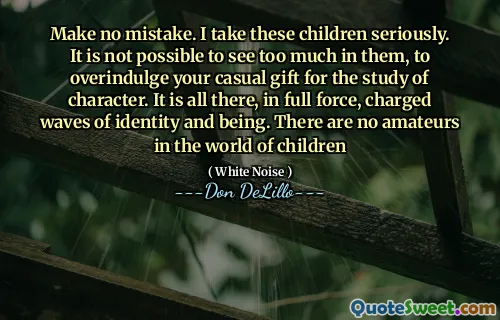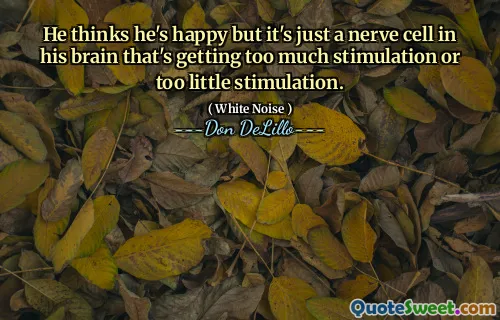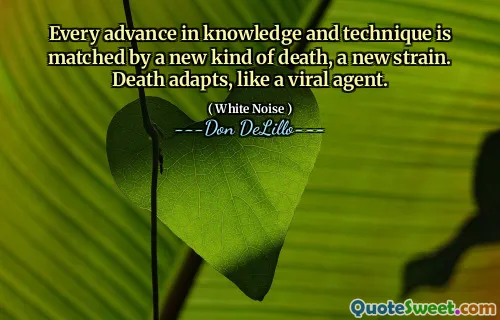
He thinks he's happy but it's just a nerve cell in his brain that's getting too much stimulation or too little stimulation.
This quote offers a profound reflection on the nature of happiness and the mechanistic view of human emotion. It suggests that what we perceive as genuine happiness might, at its core, be a neurochemical or neurological process—something as simple as the activity level of a single nerve cell. This perspective challenges the common notion that happiness is solely a matter of external circumstances or subjective well-being; instead, it points toward a biological basis rooted in the functioning of our brains.
The analogy of a nerve cell being over- or under-stimulated illuminates how our feelings and moods could be the result of minute biochemical imbalances or stimuli. This idea raises important questions about free will and authentic experience—if our emotions are so linked to brain activity, then to what extent can we regard happiness as a conscious choice or a meaningful state? Furthermore, this implies a certain fragility in our emotional states, akin to biological systems that require precise equipment and regulation. It also brings to mind the modern understanding of mental health issues, where dysregulation in neural activity leads to depression, anxiety, and other conditions.
In literature, particularly in works like Don DeLillo's 'White Noise,' such themes explore the superficiality and mechanization of modern existence. They remind us that beneath the surface of everyday life lies a complex biological orchestra, which, while fascinating, can also render our feelings somewhat impersonal or mechanical. Recognizing this might foster a sense of humility and compassion for ourselves and others, understanding that happiness is a fragile equilibrium often governed by unseen neural processes.
Overall, the quote underscores the interplay between biology and perception, inviting contemplation about what it truly means to feel happiness—the feeling might be as simple as a neuron firing, yet as complex as human experience itself.










